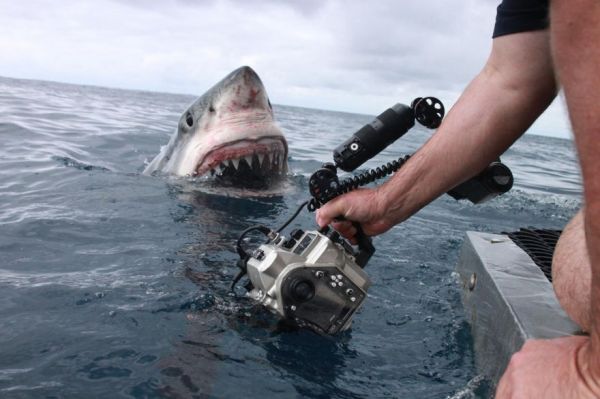Rick Ross sold about a billion dollars worth of crack cocaine during his "career."

by James Altucher
We want you to come out here and interview "Freeway Rick Ross" on stage.
Who?

I was talking to Jayson Gaignard. I don't really know anything
about anything so Jayson had to explain and then I looked up Rick. And
then I got obsessed.
Rick Ross sold about a billion dollars worth of crack cocaine during his "career."
I read every book. I read
his autobiography. I read about a dozen articles. I watched three documentaries.
I flew out to Jayson's Mastermind Talks in Napa Valley.
Seth Godin has great advice about speaking at conferences: If
you speak at a conference either do it for free because you love it, or
charge FULL RETAIL.
I flew out to Jayson's conference for free.
I was really nervous because I knew I had nothing at all in
common with Rick. Maybe he would hate me. Some nerdy Jewish guy who
thinks he knows everything.
I had written down about 100 questions but I knew I wouldn't look
at my notes during the interview. I then rewrote them from memory. And
then rewrote them again.
I knew the questions I rewrote the most were the ones that were probably most interesting to me.
There were many things I didn't care much about: politics, legal
issues, the Iran-Contra situation (Rick was fooled by the CIA into
providing drug profits to the Contras).
The rise of gang violence was an issue so, before the interview, I had lunch with Rick and asked about that.
He told me that while he was there, everyone worked for one
cause: making money, and they knew that if homicide police came in then
that would be the end of the money.
"There was less gang violence when I was in charge," he said, "because we were all getting rich".
We had a great interview that lasted an hour and the result will be on
my podcast within the next few weeks.
Rick Ross's most active years were from 1981-1988. Basically a
billion dollars worth of crack went through his organization. His
connection was from Nicaragua. His distribution were all the gangs that
he grew up with in South Central LA.
His family broke up when he was four. He grew up amidst non-stop
violence. He watched his uncle kill his aunt. Gang violence was every
day.
He didn't learn to read or write so when he was 18 he was kicked
out of high school and kicked off the tennis team where he was an
aspiring champion. That was his one chance, he felt, to get out of the
ghetto.
He was on the street and needed to make money without an education, a family, and the ability to read or write.
He asked an ex high school teacher for advice on how he could make money. The teacher suggested he sell drugs.
So he sold drugs. And instead of spending his profits, Rick kept
doubling and doubling until all the other dealers were now buying from
him and Rick was using his scale to drive his own costs down.
Eventually he was the main connection in all of the United States, buying up to $5 million worth of cocaine A DAY.
The podcast will have the guts of the interview. But I was impressed how soft-spoken, ready to answer, and humble Rick was.
He had spent, in various periods, close to 20 years in jail. Now
his main goal was to lecture kids in jail and school how to avoid the
situation he was in.
Here's what I gather were his main rules on leadership. How to
lead a billion dollar organization where many of the people below him
("all of them", Rick said and the crowd we were in front of laughed)
carried guns.
A) TRY TO GET THE PEOPLE WORKING FOR YOU TO BE MORE SUCCESSFUL THAN YOU
"I wanted the same for them and for them to even surpass me."
They might not always take it. But give them the chance to be as
successful as you and they will take that example to the people below
them.
B) HONESTY
This sounds strange coming from a drug kingpin but there
aren't any lawyers or courts to track down liars. Honesty is the law in
that game.
When there are lawyers, people lie and deceive and betray. When
everything is based on your word and everyone is carrying guns, honesty
is the rule.
"If there was any funny business, I'd rather not deal with them anymore, or be very careful with them in the future."
C) BE VERY LOW KEY
Nobody ever saw Rick being flashy. He was so low key that even
when he was running almost a half billion dollars a year, the police
had no idea what he looked like.
Part of this was a decentralized structure. People several layers
below him in the organization would not have any contact with him and
would have to deal with conflicts at their level.
"I had to show by example how to manage, so the people underneath me would know what to do instead of me being always involved."
D) ONLY DO THE ESSENTIAL
Rick arranged the top level contacts between his sellers and his buyers. Then he stepped back.
Everything else had to be dealt with by the people who worked for him and the people who worked for them.
"Everyone knew what they had to do." And if they didn't, they stopped being part of the food chain.
E) DON'T MAKE IT ABOUT THE MONEY
Again: odd advice from a mega drug lord.
Rick poured many of his profits back into his neighborhood.
This was in part to give back, to contribute. But at the same time, it was strategic.
When he went to jail at one point and his bail was set at over a
million dollars the million had to come from legitimate enterprises. So
Rick could not supply his own bail.
Instead, every household on the block he grew up on, put up their own homes as bail in order to get Rick out of jail.
When you make it not about the money the benefits never stop
since money is only a tiny byproduct of the reasons we live, we do
things, we strive for success.
F) REDUCE CONFRONTATIONS
When things have the possibility of getting incredibly violent, reduce confrontation as quickly as possible.
Often Rick would simply pay off or write off any losses on people
who were no longer fitting in with the organization, rather than have a
confrontation with them.
Violence could bring in a whole new set of problems. Better to take a loss and move on and now worry about it.
G) FREEMIUM
It's almost a cliche, but Rick told how he went to Cincinnati.
Stayed with a friend and told him to invite ten of his friends over.
Then when everyone was there he gave everyone a free supply and
told them if they were interested to come back in a week and buy the
next batch.
Everyone came back. Sometimes the sooner you charge in a
business, the quicker you put a ceiling on your potential for expansion.
This is true whether your business is drugs or when Facebook was
waiting to charge for ads.
H) ASSUME THE WORST
"I always knew I was going to go to jail," Rick said.
But he wasn't going to sit around and wait for it to happen. He owned over a dozen houses so nobody knew where he was.
He barricaded the houses with multiple iron fences so that it
would take the police over an hour to smash their way in and by then
everyone would be gone.
He would leave town for months at a time. He would put extra
profits into "legitimate" businesses like a car parts company and
hotels.
He always assumed the worst, so that's how he was able to diversify all the potential ways he could succeed.
***
At the end of the interview Rick described how he learned how to read and write in prison.
He said that the US jail system spends $45,000 a year per prisoner but refuses to buy prisoners books.
He recommended the books,
As a Man Thinketh by James Allen,
Awaken the Giant Within by Tony Robbins,
Think and Grow Rich by Napoleon Hill, and
The Richest Man in Babylon by Og Mandino.
He said that when he was broke and his mother was broke and his
community was broke and he couldn't read or write and had no education
or prospects, this seemed like the only way out.
When asked what he could've have done differently he paraphrased,
The Richest Man in Babylon.
When I was young I asked the most successful person I knew how I could make some money, he said.
He looked down for a few seconds. Looked back up at the audience. Paused.
"I asked the wrong person."












